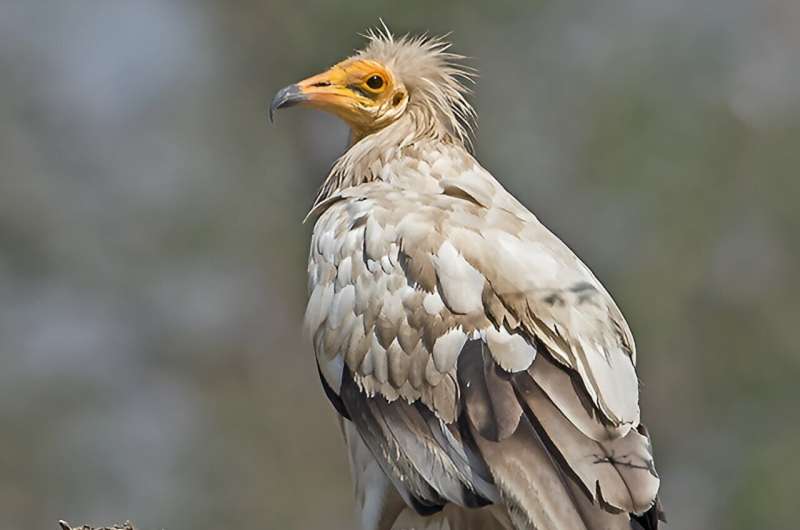This article has been reviewed according to Science X's editorial process and policies. Editors have highlighted the following attributes while ensuring the content's credibility:
fact-checked
peer-reviewed publication
trusted source
proofread
Study shows captive-bred Egyptian vultures can improve their flight and migration performance

Two types of experiences affect the behavioral skills of animals: the animal's environment during its early development and acquired experience. Ben-Gurion University of the Negev's researchers followed Egyptian vultures during migration, a critical and challenging period for them, and investigated how their flying skills developed by examining their performance using high-resolution tracking.
Their findings are published in the journal Current Biology.
The flight skills of two groups of birds of the Egyptian vulture species (Neophron percnopterus), a long-distance soaring raptor, were assessed using GPS transmitters for 127 autumn migrations of 65 individuals. The two groups were quite different in terms of their early life experiences: one group was raised in captivity, and the other in the wild.
The birds in both groups improved their flight and migration performance as they gained experience. However, the improvements observed were most evident for vultures raised in captivity.
During their first migration, the captive-bred birds were less efficient but could catch up with the migration performance of those raised in the wild as early as the second migration. Thus, the experience gained helped offset the shortcomings of their early life experience at an early stage.
Just as it is harder for humans to learn a language in old age, the vultures that hatched in captivity and were set free at a later age found it difficult to learn the necessary flying and roaming skills but eventually caught up with those that learned earlier.
"We were able to generate data on the vultures' migration and flying skills. The data made it possible to learn about the value of early experience and acquired experience and their impact on the ability of birds to cope with challenging periods such as migration," explained Dr. Ron Efrat, one of the lead investigators, who recently completed his doctoral studies in the laboratory of Prof. Oded Berger-Tal of the Jacob Blaustein Institutes for Desert Research at Ben-Gurion University of the Negev.
"It seems that birds, like humans, are also affected by their life experience," he concluded.
More information: Ron Efrat et al, Early and accumulated experience shape migration and flight in Egyptian vultures, Current Biology (2023). DOI: 10.1016/j.cub.2023.11.012
Journal information: Current Biology
Provided by Ben-Gurion University of the Negev




















